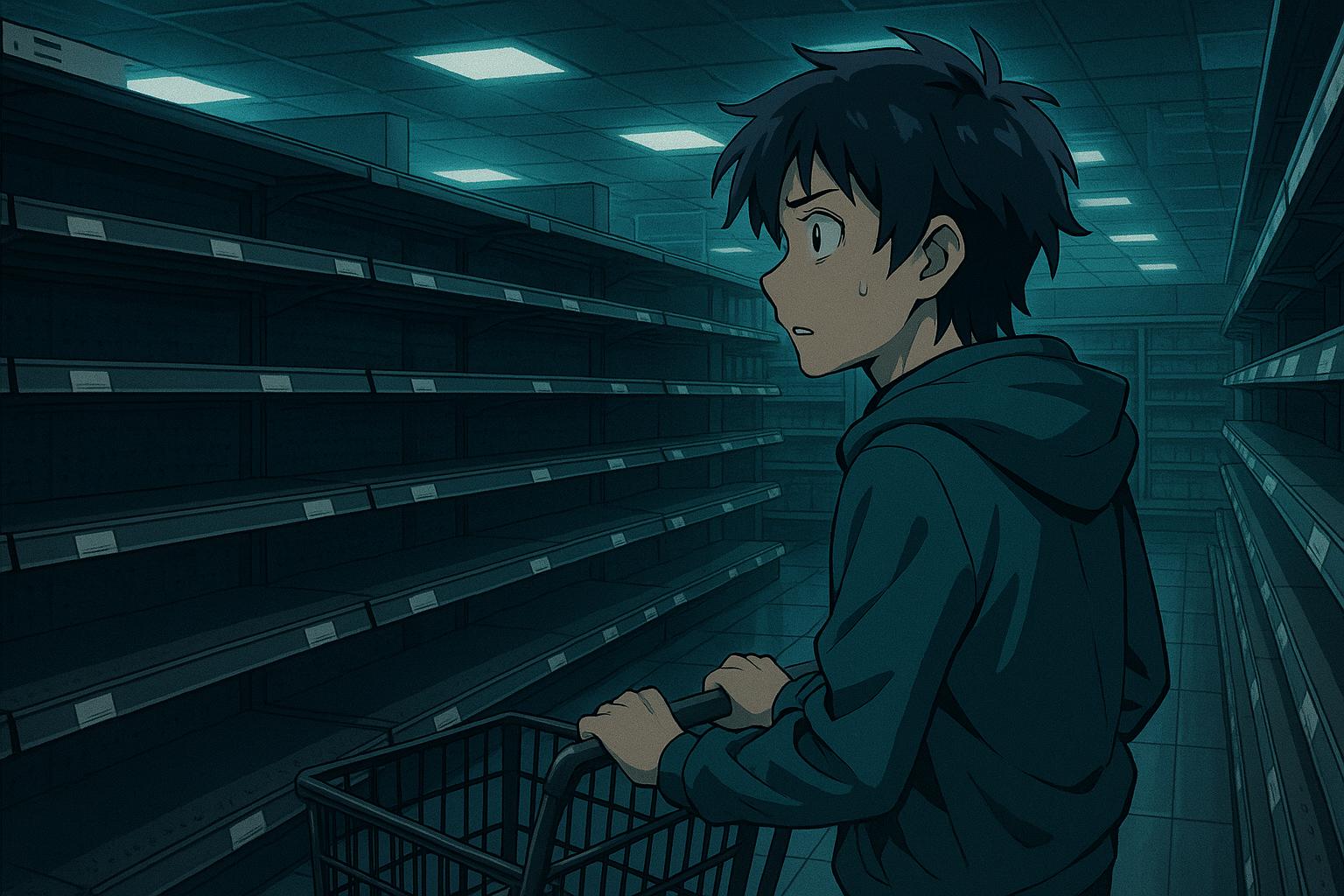I have seen the future. It unfolded last week in an unsettling scene at the Co-op supermarket, where shelves that once overflowed with goods stood strikingly empty. In the wake of a cyber-attack that severely disrupted its supply systems, the supermarket has struggled to restore normalcy. This incident left customers staring at bare aisles, drawn into a moment of reflection about the fragility of modern conveniences. With promises of recovery, the shelves still spoke volumes about vulnerability, leaving patrons feeling both anxious and deprived.
During my visit, I struck up a conversation with a fellow shopper who echoed a sentiment that many might share: “This is what it will be like when the bomb drops.” His quip, delivered with a sardonic smile, crystallised the unsettling truth that such disruptions—as mundane as they may seem—can provide a harbinger of larger crises to come. The stark reality is that a single cyber-attack can wreak havoc on essential services, cutting off access to the very basics of daily life.
The urgency for personal preparedness becomes even more pronounced when considering the guidance offered by various governments worldwide. The Swedish government has been particularly proactive, advising citizens to stockpile essentials such as water and non-perishable food, highlighting an overarching anxiety about geopolitical tensions and their possible ramifications. In an official communication last year, citizens were urged to keep at least three litres of water per person per day on hand. Meanwhile, diverse food options like dried meats and tinned goods were identified as staples for resilience during uncertain times.
In contrast, the UK government’s messaging around preparedness appears muted, lacking the resonance and clarity exhibited by its Scandinavian counterparts. While the Co-op and other retailers navigate the aftermath of recent cyber incidents, the call to action from British authorities seems hardly audible—a mere whisper advising the collection of tinned goods. Such disparities in messaging reflect broader societal attitudes towards crisis and preparedness.
The Co-op's recovery from this cyber incident is emblematic of a larger trend affecting UK retailers. The company's operational systems were disrupted due to an attempted hack that compromised system access as a precaution. Now, with announcements stating that their systems are fully operational again, the Co-op aims to restore not just stock but customer trust as well. However, this incident is part of a worrying pattern: another major retailer, Marks & Spencer, continues to struggle with a cyberattack that has cost the company substantial financial losses and damaged its reputation as it grapples with system recovery and customer frustration.
On a broader scale, these cyber incidents signal a profound vulnerability in the retail sector. The attack on the Co-op follows a series of breaches that have affected various sectors, underscoring a pressing need for enhanced cybersecurity measures. In light of these challenges, UK retailers are being urged to undertake a thorough reassessment of their security protocols, acknowledging that prevention is paramount as such threats become increasingly sophisticated.
Amid this backdrop of uncertainty, the issue of personal preparedness in the UK is emerging as a poignant subject of conversation. Anecdotal evidence from other regions impacted by natural disasters, such as the wildfires in Los Angeles, has illustrated the importance of being equipped with emergency supplies. Popular Science magazine has advised that everyone should adopt a degree of preparedness, highlighting the diverse array of individuals—from survivalists to suburban parents—who recognise the necessity of ‘go bags’ stocked with essentials.
What goes into these bags is often shaped by cultural backgrounds and personal circumstances. For some, the staples of survival may lack variety; while others can stockpile luxuries that nourish not just the body, but their spirit during challenging times. The question of what constitutes an essential supply in an apocalyptic scenario remains subjective and dependent on individual tastes and needs.
The disparity highlights a growing commercial opportunity within the prepping industry, which is gradually recognising the need to cater to diverse cultures and preferences. As awareness of potential threats rises, there is a pressing need for products that resonate with various communities and even reflect cultural cuisines—beyond the usual staples of tinned goods.
Despite the Co-op's claims that they are on the path to recovery, a lingering sense of unease permeates the air. The empty shelves serve as a sobering reminder that we live in a precarious world, where once-reliable just-in-time supply chains can falter unexpectedly. As the spectre of future disruptions looms large, it is increasingly clear that personal preparedness may no longer be an option but a necessary mindset in this rapidly evolving landscape.
In embracing this ethos, one cannot help but take heed: the future glimpsed in those desolate aisles may well be a clarion call to be prepared—for oneself and for the community.
Reference Map
- Paragraph 1: [1]
- Paragraph 2: [1]
- Paragraph 3: [1], [5]
- Paragraph 4: [1], [2]
- Paragraph 5: [2], [3]
- Paragraph 6: [2], [4]
- Paragraph 7: [3]
- Paragraph 8: [4]
- Paragraph 9: [6], [7]
- Paragraph 10: [1], [2]
- Paragraph 11: [1], [2]
- Paragraph 12: [1]
- Paragraph 13: [1]
- Paragraph 14: [1]
Source: Noah Wire Services
